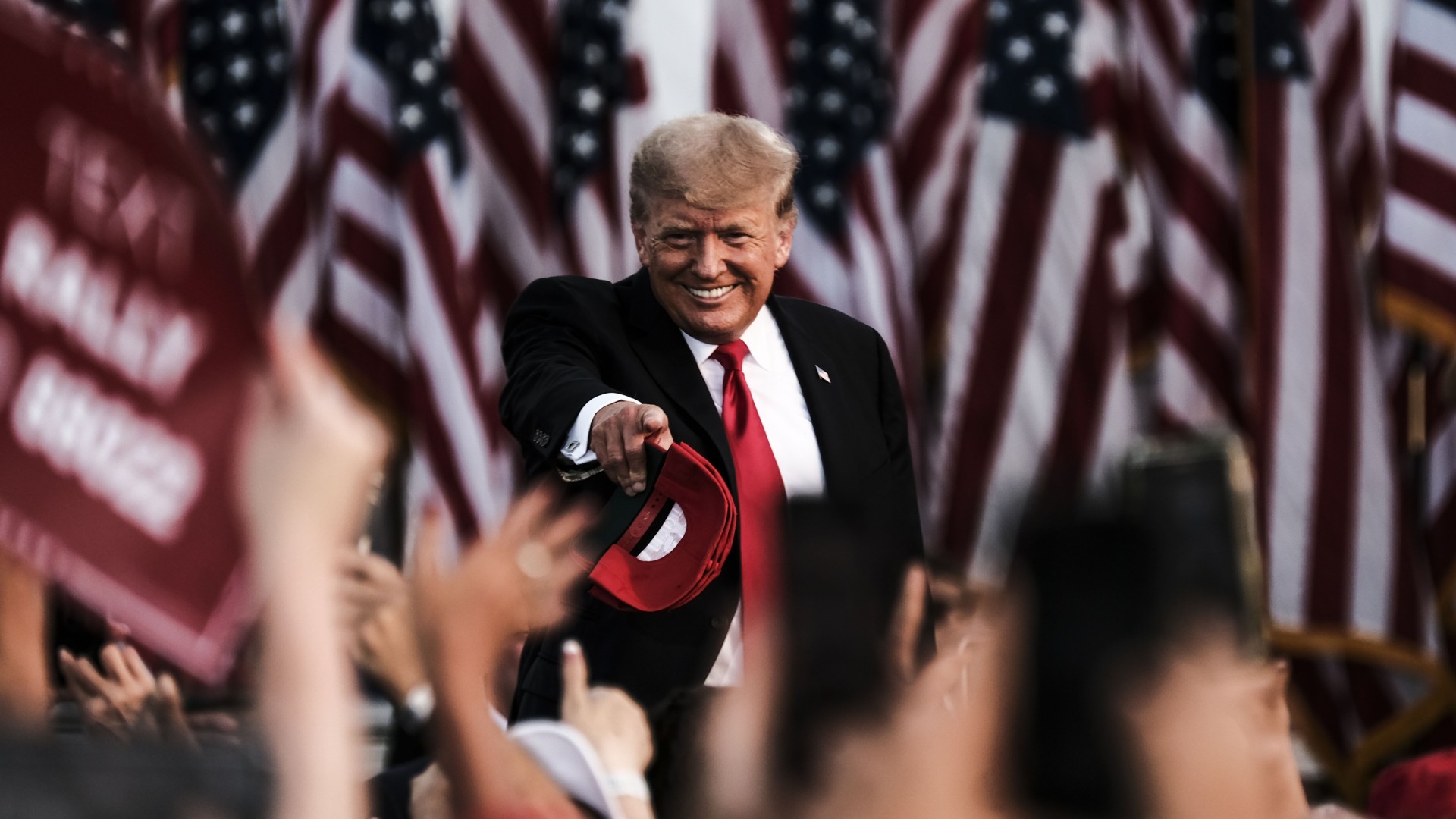Is this the end of the free trade era?
Donald Trump's threat to impose crippling tariffs is 'part of a broader turn towards protectionism in the West'

A free daily email with the biggest news stories of the day – and the best features from TheWeek.com
You are now subscribed
Your newsletter sign-up was successful
"Free trade, RIP," wrote Irwin Stelzer in The Sunday Times.
Donald Trump's threat to impose 25% tariffs on all goods from Mexico and Canada while hiking the levies on products from China has been widely viewed as the opening salvo in a global trade war and the death knell for the free-market "Washington Consensus".
In truth, Trump's second coming does not signal a definitive break with the "economic orthodoxy that had dominated American policy making for nearly half a century", said The Atlantic. It is in fact just the latest step in a near decade-long process that included his first-term protectionist agenda that was quietly continued – and in some cases expanded – by the Biden administration, the Covid-19 pandemic, and the emergence of increasingly independent global trading blocs.
The Week
Escape your echo chamber. Get the facts behind the news, plus analysis from multiple perspectives.

Sign up for The Week's Free Newsletters
From our morning news briefing to a weekly Good News Newsletter, get the best of The Week delivered directly to your inbox.
From our morning news briefing to a weekly Good News Newsletter, get the best of The Week delivered directly to your inbox.
What did the commentators say?
Imposing tariffs on foreign goods as part of a pledge to push back against economist globalisation was "central to Trump's initial appeal to left-behind, post-industrial areas across the US", said Harrison Griffiths, from the free-market Institute of Economic Affairs, in City A.M.. But it makes little sense economically.
A study of the effects of Trump's first-term tariffs on Chinese products shows it cost each American household an average of $831 per year, as well as a reduction in investment, real wages and long-term GDP.
Once again, the effect of crippling tariffs on Canada and Mexico, two of America's biggest trading partners, "will hurt American consumers most of all", said The Economist.
But "protecting American workers and stopping the flow of drugs and 'illegal aliens' is only part of the story", said Stelzer, a business adviser.
A free daily email with the biggest news stories of the day – and the best features from TheWeek.com
Trump hopes to use tariffs to "increase government revenues without overtly raising taxes". The aim would be "to shift the burden of taxation from income and wealth to consumption, a long-held goal of conservatives but too regressive to propose".
"That shift from taxing work to taxing consumption of imported stuff is a big reform of the fiscal structure, travelling in the disguise of a move to affect trade balances."
What next?
As the ultimate negotiator-in-chief it is hard to know how much Trump truly believes that an end to free trade really is in America's – and his – best interest economically and politically. It may be tempting, therefore, to "breathe a sigh of relief that these tariffs are a theatrical way to gain leverage", said The Economist.
Some have chosen to view the president-elect's incoming economic team as proof that his post-election blustering is just that. Scott Bessent, a hedge-fund manager who is Trump's pick for treasury secretary, has been described by Elon Musk as a "business-as-usual choice", while commerce secretary nominee Howard Lutnick has said tariffs are part of negotiating.
But Trump's "misguided hostility to trade is, tragically, part of a broader turn towards protectionism in the West", said Griffiths.
While the approach of the US and EU, for example, may differ, "what we observe among developed nations is a gradual but perceptible shift away from uncontrolled free trade, and a move toward the imposition of more controls and obstacles", said Politico.
In doing this, Western governments are also "implicitly acknowledging the obvious: multilateralism has so far failed to create the environment the global economy needs".
As with anything he does, it is hard to predict whether Trump's actions will match his rhetoric.
He may fear tariff-induced inflation, retaliation from the likes of Mexico, and a negative reaction from the stock market, but "you cannot bank on any of this", said The Economist.
"If threats are never carried through, they will lose their power. Ultimately that is likely to force Trump to show that he means what he says."
Elliott Goat is a freelance writer at The Week Digital. A winner of The Independent's Wyn Harness Award, he has been a journalist for over a decade with a focus on human rights, disinformation and elections. He is co-founder and director of Brussels-based investigative NGO Unhack Democracy, which works to support electoral integrity across Europe. A Winston Churchill Memorial Trust Fellow focusing on unions and the Future of Work, Elliott is a founding member of the RSA's Good Work Guild and a contributor to the International State Crime Initiative, an interdisciplinary forum for research, reportage and training on state violence and corruption.